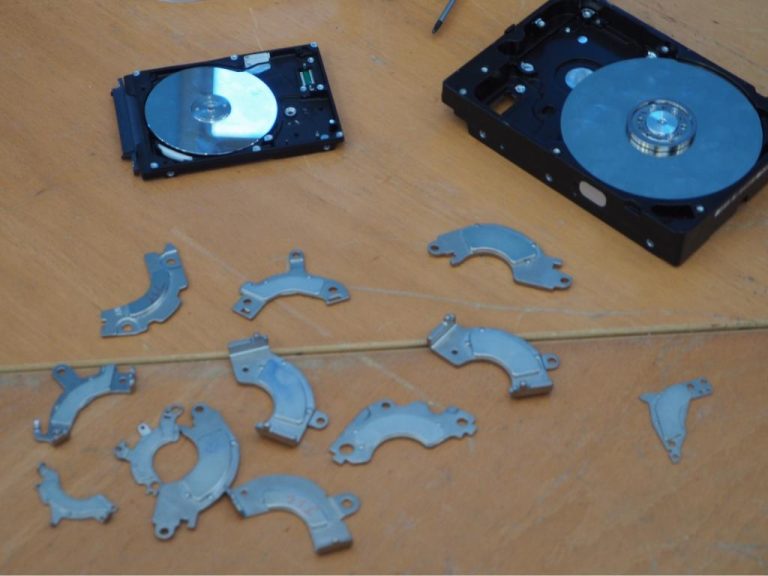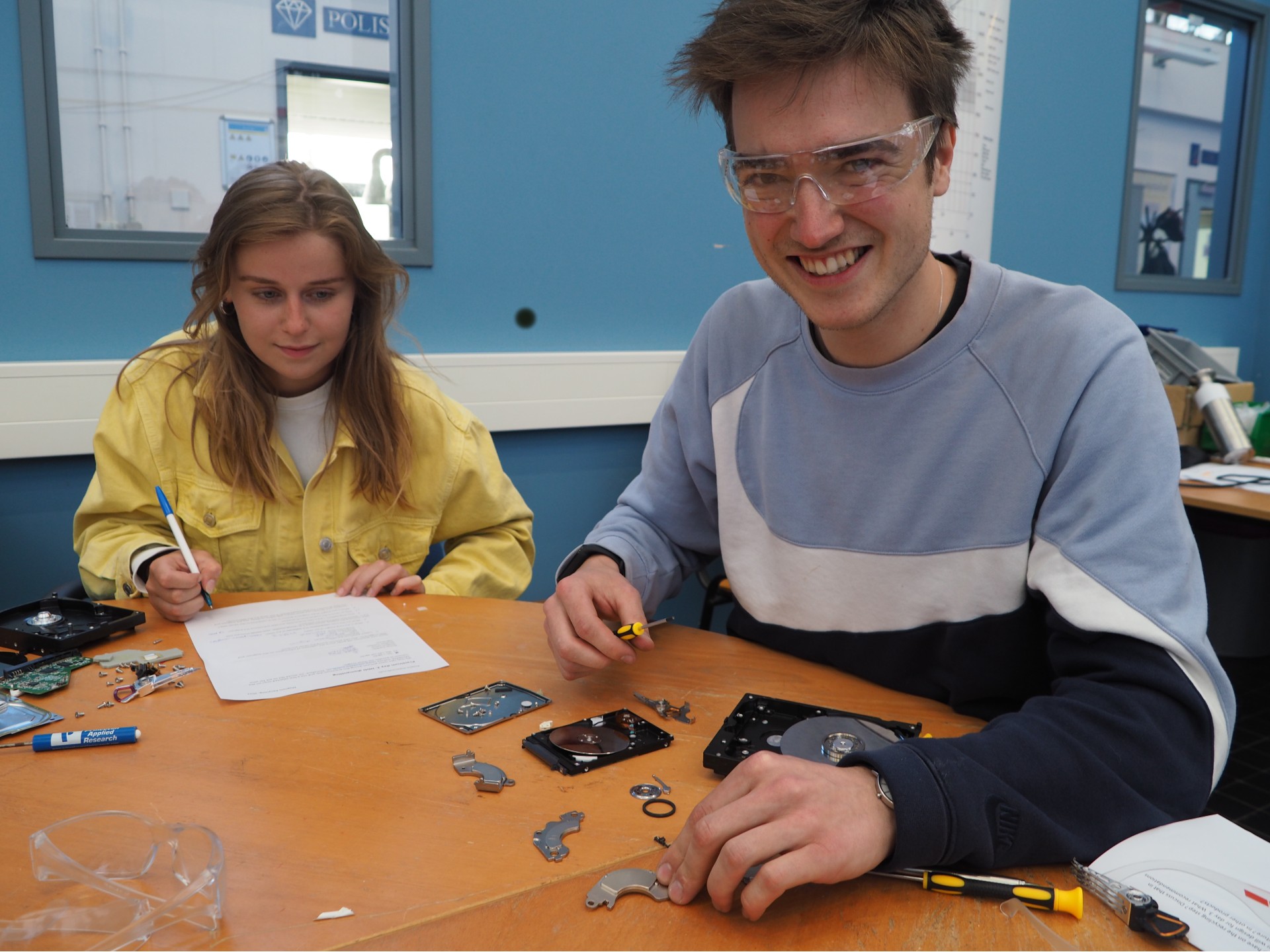TU Delft researchers expect there to be a shortage of magnets within 10 years. That will hamper the energy transition. The EU Valomag recycling programme may offer a way out.
Students Jelke Meij and Sam van Bekkum have learned how to save magnets from a hard disk drive. (Foto: Jos Wassink)
Six mechanical engineering students at a table dismantling hard disks in search of magnets. That will be a laugh. But the subject is dead serious, says university lecturer Soshan Abrahami. She leads the recycling project as part of the materials science course for ten groups of six bachelor students.
Hard disks may contain a few dozen grams of magnets, but what about all the e-bikes, scooters, electric cars and wind turbines that contain about 100 kilos of magnets? The waste stream for magnets has hardly begun. Before it does, the recovery of magnets must be in order – certainly in Europe.
Do not discard
Most magnets contain the elements neodynium (Nd) or dysprosium (Dy), and rare earths, 87% of which comes from China. Until recently, less than 1% of magnetic materials in Europe was recycled, while demand is expected to increase manifold in the coming decades. The conclusion is clear: in the light of the energy transition, Europe can no longer afford to discard magnetic materials.
‘The technique must quickly be transferred from lab to industry’
The aim of the European EIT RawMaterials programme is therefore to rapidly develop techniques and routes for recycling imported rare earths. For magnets, the Valomag programme, in which TU Delft and six partners are setting up facilities to recycle magnets, was established. TU Delft is developing techniques to recover and demagnetise raw materials. “The technique must be transferred from the laboratory to industry as quickly as possible,” says Jan-Henk Welink (Faculty 3mE), who is in charge of communication and coordination for Valomag.
Manually disassembling hard disks is effective, but not industrially applicable because it is too labour-intensive. The industrial alternative is to shred the entire hard drive, after which about 70% of its magnetic material can be recovered. By heating the material to above 350 degrees, it loses its magnetism, which is a condition for reuse.
The benefit of the workshop lies not in the materials (scrap value EUR 1 per kilogram) but in the awareness. “Future engineers must be aware of material reuse,” says Abrahami. “Welding or gluing parts together makes recycling critical materials difficult and costly, and should therefore be avoided.”
The Valomag programme will conclude with a seminar at the end of this year. There will then be a recipe for recycling magnetic raw materials, says Welink. “Then Suez (a waste disposal and recycling company) can start building plants. A collection network also needs to be set up.” For hard disks, the recycling will probably start at small companies that refurbish computers.
More about the role of critical elements in the energy transition:
- Trapped between green goals and geopolitical reality (Delta, 19 April 2022)
- Executive summary of International Energy Agency report.

The harvest of a dismantling session. (Photo: Jos Wassink)
Do you have a question or comment about this article?
j.w.wassink@tudelft.nl


Comments are closed.